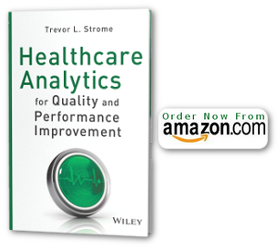In the news…
Columbia University Medical Center researchers will be adopting IBM “Streaming Analytics” in a project to help detect brain injury and other health issues much more quickly than was previously possible. According to an article on TMCnet Healthcare Technology, streaming analytics is capable of analyzing large volumes in data in motion. The article states that the process “combines data from medical tests and equipment in the NICU with data from other sources such as databases and images and analyzes it in real time.” This will help physicians detect changes in symptom progression that are not visible to the naked eye and has the potential to save many lives.
Commentary…
Most healthcare analytics currently are done post-hoc as an investigation of what has happened. Analysis of real-time data using pattern-recognition and other predictive-analytics approaches promises to paint a more detailed picture of what is happening (and perhaps even what is going to happen) regarding the health status of patients within a healthcare organization (such as a hospital ward, Emergency Department, etc). Real-time analytics would be invaluable during an outbreak of a new infectious health threat (such as new influenza strain). For example, real-time analytics applications could determine which patients are most likely positive for the illness in question through real-time analysis of triage information, vital signs, and other clinical data. Healthcare providers could then cohort infectious patients more quickly and apply the necessary infection control precautions. In the early and escalating stages of an outbreak, this could help prevent or limit the spread of the illness among patients seeking care within an Emergency Department or other care setting.
As healthcare organizations continue to computerize more medical data is available via electronic medical records, the application of real-time analytics opens up exciting opportunities to ensure that patients receive the urgent care they require as soon as possible. This will result in patients who become less sick and/or less physically impacted by the illness, thereby improving their outcomes and quality of life.

{ 0 comments… add one now }